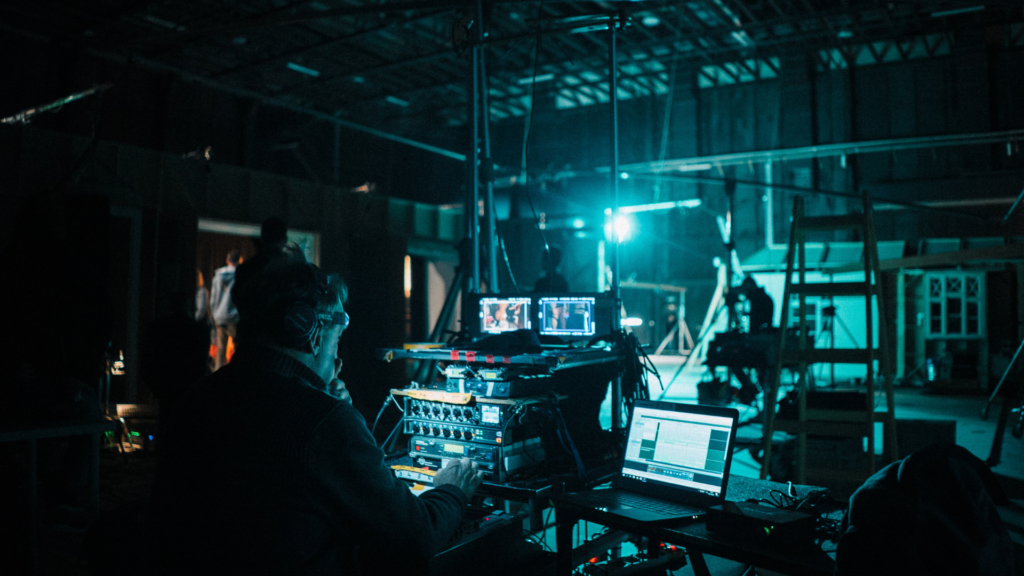Cinematographer Career
The dance of light and shadow, the sweep of a camera arc, the intimacy of a close-up – these are the visual symphonies that transform mere movies into unforgettable cinematic experiences. Orchestrating these symphonies is a masterful professional known as a cinematographer. Within the complex, multilayered world of filmmaking, the role of a cinematographer is indispensable in translating a director’s vision into the language of the screen.
This article aims to delve into the world of cinematography, discussing the key responsibilities, necessary skills, and the pathways one can follow to embark on this exciting career journey. Whether you are a film enthusiast, an aspiring filmmaker, or someone intrigued by the magic behind the camera, join us as we explore the fascinating role of a cinematographer in the realm of cinematic storytelling.
The Role of a Cinematographer
The world of cinema is a complex and exciting one, and few roles are as critical to the success of a film as that of a cinematographer. These skilled professionals play a crucial role in bringing a director’s vision to life on the big screen, using their technical and creative skills to capture stunning visuals and create a unique atmosphere for each film.
Understanding the Cinematographer’s Responsibilities
A cinematographer, also known as a director of photography, is responsible for capturing the visuals of a film. They work closely with the director to determine the look and feel of each shot, selecting camera angles, lighting, and other elements to create the desired effect.
Cinematographers must have a deep understanding of the technical aspects of filmmaking, including camera operation, lighting, and post-production. They must also be skilled communicators, able to work with actors, crew members, and other stakeholders to bring a scene to life.
Essential Skills and Qualifications for Cinematographers
To become a successful cinematographer, there are several key skills and qualifications you’ll need to develop:
- Technical knowledge: Cinematographers must have a deep understanding of cameras, lenses, lighting, and other technical equipment used in filmmaking. They must also be skilled in post-production techniques, including color grading and editing.
- Creative vision: A great cinematographer must be able to work with a director to bring their creative vision to life on the screen. This requires a strong sense of aesthetics and the ability to think outside the box.
- Communication skills: Cinematographers must be skilled communicators, able to work with actors, crew members, and other stakeholders to bring a scene to life. They must also be able to articulate their ideas to the director and other members of the creative team.
- Flexibility: Filmmaking is a collaborative process, and cinematographers must be able to adapt to changes in the production schedule, weather conditions, and other unexpected events.
Getting Started as a Cinematographer
If you’re interested in pursuing a career as a cinematographer, there are several steps you can take to get started:
- Get a formal education: While it’s possible to learn the technical skills of filmmaking on your own, a formal education can provide you with a strong foundation and help you develop a network of contacts in the industry. Consider enrolling in a film program at a reputable institution like New York University’s Tisch School of the Arts.
- Gain hands-on experience: In addition to formal education, it’s essential to gain hands-on experience in the field. Consider working as a production assistant or intern on film sets to learn about the various roles and responsibilities involved in filmmaking.
- Build a portfolio: As you gain experience, build a portfolio of your work to showcase your skills and creativity to potential employers. Be sure to include a variety of shots and scenes that demonstrate your ability to work with different lighting, camera angles, and other elements.
- Network: Building a network of contacts in the film industry is essential to finding job opportunities as a cinematographer. Attend film festivals, join professional organizations like the American Society of Cinematographers, and connect with other filmmakers on social media to expand your network.
Key Takeaways
Becoming a successful cinematographer requires a combination of technical knowledge, creative vision, communication skills, and flexibility. While it’s possible to learn filmmaking on your own, a formal education and hands-on experience are essential to developing the skills and network you need to succeed.
If you’re interested in pursuing a career as a cinematographer, consider taking the NYU Film and TV Industry Essentials online course and certificate program offered by Yellowbrick. This program provides a comprehensive overview of the industry and can help you develop the skills and knowledge you need to get started on your path to success.






